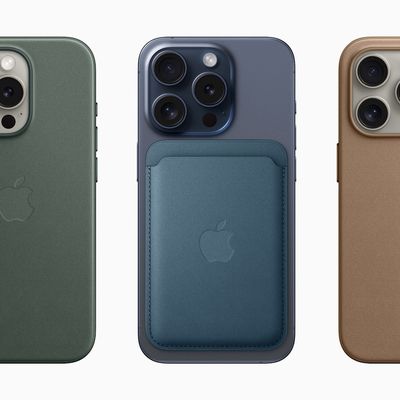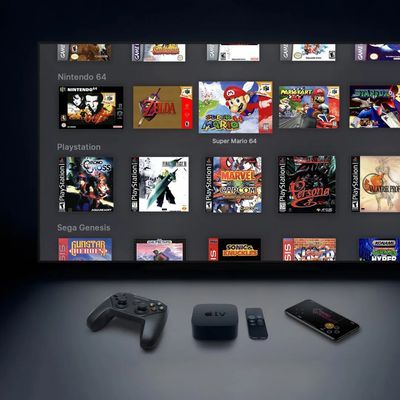 Apple and the U.S. Federal Trade Commission have entered into a consent decree over in-app purchases on the App Store. In a memo to Apple employees, CEO Tim Cook wrote that the company felt it had no other choice.
Apple and the U.S. Federal Trade Commission have entered into a consent decree over in-app purchases on the App Store. In a memo to Apple employees, CEO Tim Cook wrote that the company felt it had no other choice.
According to the agreement, Apple will be required to provide full refunds to parents whose children purchased unauthorized in-app items, setting a floor of $32 million on refunds.
A large part of the FTC's concern was related to a fifteen-minute window after a password is entered on the App Store, during which other purchases can be made without a password being entered. Apple will now be required to notify users that the fifteen-minute window exists to obtain "expressed and informed consent" from its customers.
In early 2013, Apple settled a class action lawsuit originally filed by parents after their children ran up hundreds of dollars on in-app purchases in freemium games.
In the memo, which was obtained by Re/code, Cook wrote that it didn't "feel right for the FTC to sue over a case that had already been settled" and it "smacked of double jeopardy".
From: Tim Cook
Date: January 15, 2014
Subject: FTC announcementTeam,
I want to let you know that Apple has entered into a consent decree with the U.S. Federal Trade Commission. We have been negotiating with the FTC for several months over disclosures about the in-app purchase feature of the App Store, because younger customers have sometimes been able to make purchases without their parents’ consent. I know this announcement will come as a surprise to many of you since Apple has led the industry by making the App Store a safe place for customers of all ages.
From the very beginning, protecting children has been a top priority for the App Store team and everyone at Apple. The store is thoughtfully curated, and we hold app developers to Apple’s own high standards of security, privacy, usefulness and decency, among others. The parental controls in iOS are strong, intuitive and customizable, and we’ve continued to add ways for parents to protect their children. These controls go far beyond the features of other mobile device and OS makers, most of whom don’t even review the apps they sell to children.
When we introduced in-app purchases in 2009, we proactively offered parents a way to disable the function with a single switch. When in-app purchases were enabled and a password was entered to download an app, the App Store allowed purchases for 15 minutes without requiring a password. The 15-minute window had been there since the launch of the App Store in 2008 and was aimed at making the App Store easy to use, but some younger customers discovered that it also allowed them to make in-app purchases without a parent’s approval.
We heard from some customers with children that it was too easy to make in-app purchases, so we moved quickly to make improvements. We even created additional steps in the purchasing process, because these steps are so helpful to parents.
Last year, we set out to refund any in-app purchase which may have been made without a parent’s permission. We wanted to reach every customer who might have been affected, so we sent emails to 28 million App Store customers – anyone who had made an in-app purchase in a game designed for kids. When some emails bounced, we mailed the parents postcards. In all, we received 37,000 claims and we will be reimbursing each one as promised.
A federal judge agreed with our actions as a full settlement and we felt we had made things right for everyone. Then, the FTC got involved and we faced the prospect of a second lawsuit over the very same issue.
It doesn’t feel right for the FTC to sue over a case that had already been settled. To us, it smacked of double jeopardy. However, the consent decree the FTC proposed does not require us to do anything we weren’t already going to do, so we decided to accept it rather than take on a long and distracting legal fight.
The App Store is one of Apple’s most important innovations, and it’s wildly popular with our customers around the world because they know they can trust Apple. You and your coworkers have helped Apple earn that trust, which we value and respect above all else.
Apple is a company full of disruptive ideas and innovative people, who are also committed to upholding the highest moral, legal and ethical standards in everything we do. As I’ve said before, we believe technology can serve humankind’s deepest values and highest aspirations. As Apple continues to grow, there will inevitably be scrutiny and criticism along our journey. We don’t shy away from these kinds of questions, because we are confident in the integrity of our company and our coworkers.
Thank you for the hard work you do to delight our customers, and for showing them at every turn that Apple is worthy of their trust.
Tim
In response, the FTC said that its proposed order is more robust than the settlement in the class action lawsuit, and that the resolution in that lawsuit didn't require Apple to change its behavior. Additionally, the FTC's settlement does not put a cap on the amount that could be refunded to parents, while the lawsuit's did.





















Top Rated Comments
Can parents do more to see what their kids are doing at such a young age? Definitely!
Freemium games that charge you $100 for something that will benefit you for a few minutes or hours are evil. Those are the things to get rid of. Personally, I despise the freemium model. It's designed to get customers to spend more on a game than they would have been willing to spend on an outright purchase. I'm not a big fan of the subscription model either (yes, I know, that's a whole other discussion), but I think that the freemium model is FAR worse.
IAP, IMO, are not a bad thing. As an example of a good implementation of them, there is an app that I work with that has several modules that offer expanded functionality. By breaking up the functionality, they allow me the flexibility to only buy what I need. It works quite well. Also, IAP can be used in games to enable free trial and pay to enable the full game (as a 1 time purchase). I've seen a number of games follow this approach, rather than having separate free versions that are limited, and I think it works better and makes it more likely that a customer buys the full game.
As for the whole parental question, my son succeeded in using an IAP in a game on my iPad. I was right there. He found a game that he wanted, so I downloaded it. We launched it, and there was something that he wanted (it was the option to fly a particular plane), so he clicked on it, a little dialog popped up, and he touched the OK button, all in a moment when I was answering a question my wife had asked me. BAM! A $10 purchase. Wrote to Apple and they refunded the purchase, but it drove home how quick and easy it was for my son, who occasionally plays on my iPad or my wife's iPad, to make a purchase if we've recently had a reason to enter the password.
The steps we took to deal with this were straightforward. At first, I tried setting the option to always ask for a password. This became an issue primarily because this meant that the password was required for every update, in addition to new downloads and IAPs. So, that was switched back. The final solution was to turn off IAP, in the premise that, if my wife or I want to make an IAP, we know how to turn it back on so we can do it. This has worked quite well. There have been a couple of instances where my son has accidentally (or intentionally) hit a button that would have lead to an IAP, but it was quite promptly blocked.
I appreciated the fact that Apple refunded that one mistaken purchase. But, having seen the potential issue, any future failures are on me. Knowing that my son is capable of doing this, it's up to me to make sure that there are reasonable safeguards against it. Eventually, those safeguards will include him having his own iPad with the setting to always ask for the password enabled.
To pu it another way, fool me once, shame on you, fool me twice, shame on me.
Much easier to sue a company with deep pockets.